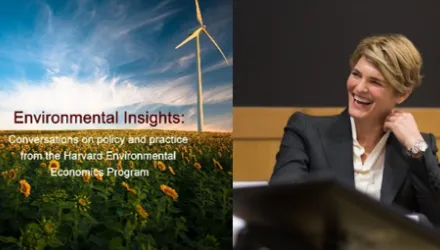Abstract: This lecture provides a comparative analysis of ENSO forecasting systems in the Pacific and southern Africa. With billions of dollars in infrastructure and private property at risk, and human health and well-being threatened during ENSO events, forecasting systems have begun to be embraced by managers and firms at multiple levels. The study suggests that such systems need to consciously manage the boundaries between science and policy, across disciplines, across scale, and across knowledges to create information that is salient, credible, and legitimate to multiple audiences. This research suggests institutional mechanisms that appear to be useful in managing such boundaries, including: mechanisms for structuring participation; mechanisms for communication -- convening, translation, and mediation; structuring dual accountability and autonomy across boundaries; and utilizing of boundary objects.Bio of David Cash:David Cash is a BCSIA Research Associate at KSG and a Lecturer in Environmental Science and Public Policy in the Faculty of Arts and Sciences. He recently completed the doctoral program (2001) in Public Policy at the Kennedy School, producing a thesis entitled ?Integrating Information and Decision Making in a Multi-Level World: Cross-Scale Environmental Science and Management.? He is currently working on the Sustainability Systems Project and the Initiative for Science and Technology for Sustainable Development. Cash, trained in both biology and policy analysis conducts research on the interaction of science and environmental decision making for a range of issues such as climate change and variability, biodiversity/biotechnology, and food security. The broad focus of his work addresses the institutional dimensions of how scientific knowledge and technology can be harnessed to support human development while maintaining the natural systems upon which human society depends. One of his specific interests is investigating how information and decision making systems can best support the management and negotiation of environmental risks that have implications on multiple levels ? from the international to local. In addition to his research and teaching, Cash has also been involved in a variety of practical efforts to address issues at the nexus of science and environmental policy, including working with the Office of Science and Technology Policy?s U.S. National Assessment of the Consequences of Climate Change, the Council on Environmental Quality at the White House, the UN-sponsored, Millennium Ecosystem Assessment, the National Center for Environmental Decision-making Research, and the International Council for Science (ICSU) in preparation for the upcoming UN World Summit on Sustainable Development.



